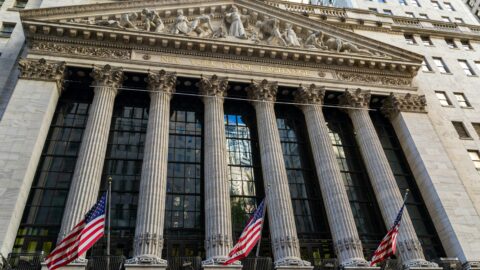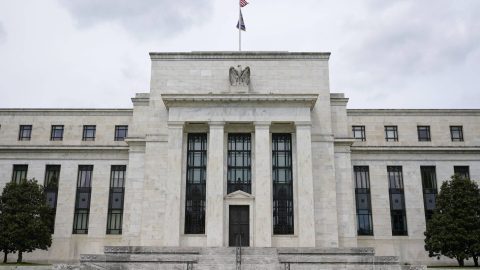Articles about “Recession”
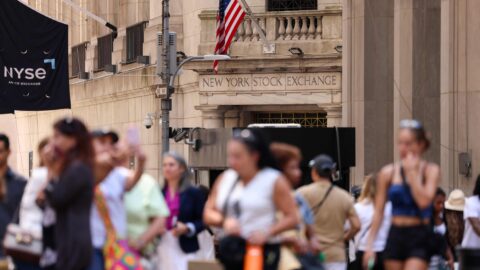
The Sahm Rule: What is behind the recession indicator?
The Sahm Rule, an important recession indicator in the US, was triggered at the beginning of August – causing uncertainty on the markets. We explain what is behind the indicator and why everything could be different this time.
Losses on the stock markets: an overview of the reasons and consequences
There was little to cheer about on the stock markets at the start of the week: there were significant price losses in both Europe and the USA and the Japanese Nikkei-225 recorded one of the biggest daily losses in its history. What were the reasons for Monday’s sharp sell-off, what impact could the latest events have on the markets and what will happen with the increasingly weak economy?
Investment strategy: What happened to the recession?
The topic of an impending recession has recently become quieter again – especially in the USA. A look at a few indicators helps to assess whether the spectre of recession has actually been banished (at least for the time being).
Best of Charts: What’s coming, what’s going, what’s staying?
After a weak market year in 2022, 2023 is shaping up to be a pleasing conclusion for investors. Senior Fund Manager Christian Süttinger explains what remains of this year and what could be of particular interest on the markets in 2024 with the help of a few currently important charts.
Best of Charts: News from the inflation
Even though inflation has weakened recently, it remains an important topic for private individuals as well as for companies and the markets. What might happen next in terms of inflation and how long will the restrictive monetary policy stay with us? A look at some important financial charts will shed some light on this.
Best of Charts: Beach Edition
The stock markets are also usually a little quieter during the summer months. Many market participants take a break due to holidays and the general activity decreases. In any case, a look at some important charts indicates that no nasty surprises are to be expected during the holidays.
Immaculate disinflation: Is that possible?
Can price stability, i.e. inflation of 2%, be achieved without a recession? The further decline in inflation in the US in June has raised expectations for this favourable scenario. However, a look in the rear-view mirror calls for caution. In the past, a central bank-induced decline in inflation has often been accompanied by a recession.

Recession, inflation, key interest rates: Economic outlook for the second half of the year
The feared recession has so far failed to materialise and inflation is also falling. Nevertheless, the risks remain on the downside. What could be in store for the markets in the second half of the year?
Germany slides into technical recession: What does that mean?
The German economy slipped into a technical recession in the first quarter. What does this mean for the largest economy in the euro zone and what is a technical recession?
A tale of two volatilities
The volatility of bonds has increased significantly and is clearly higher than that of equities. What are the reasons for this difference in development?
Central banks weigh risks
Most recently, central banks have signaled a somewhat less sharpish stance, as an effect of the rapid key rate hikes on the monetary environment has already become visible. However, recent economic data are dampening hopes for a rapid decline in inflation, as Chief Economist Gerhard Winzer explains in his market commentary.
Where is the recession?
The global economy grew strongly in the first quarter of 2023. At the same time, inflation remains too high, which is why central banks will continue to pursue a restrictive monetary policy. Although growth indicators are good to strong, there are therefore increased risks of recession.
Party Crashers
Improved growth prospects for China and Europe and hopes of a sustained decline in inflation have supported the markets since the beginning of the year. However, sharp central bank rhetoric and weak growth indicators in the USA could prove to be spoilers.
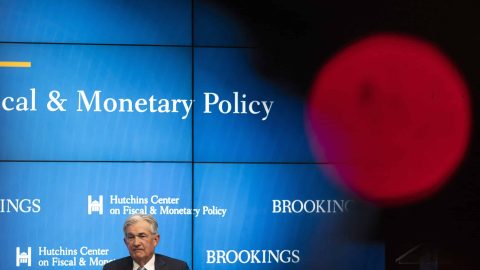
High uncertainty reduces potential for asset price increases
The environment for the financial markets remains highly uncertain. The further development of inflation and economic growth is not sufficiently foreseeable. This points to continued high fluctuations in asset prices.
Transition Phase
So far this year, high inflation rates have been the driving factor on the financial markets. This could now change, as Chief Economist Gerhard Winzer writes. Disappointingly weak indicators of economic activity could now increasingly come into focus.
Review and outlook: “2022 turned out to be a tough year for equities”
On the stock markets, the year 2022 was characterized by high uncertainties and volatility. Tamás Menyhárt, senior fund manager at Erste Asset Management and equity expert, therefore draws an initial summary of the stock market year and ventures an outlook for the coming months on the markets.
Reduction in the pace of key interest rate increases
More and more central banks are signalling a reduction in the pace at which they are raising key interest rates. However, as Chief Economist Gerhard Winzer explains, this does not necessarily mean that central banks are softening their focus on fighting inflation. Rather, a pause in the rate hike cycle would require a change in inflation dynamics.
Emerging Markets Credit Conference – a sentiment snapshot among investors
The mood among investors in the bond sector in emerging markets is mixed, as this year’s Emerging Markets Credit Conference held by US investment bank J.P. Morgan showed. Thomas Oposich, Senior Fund Manager, reports on the conference and his impressions.
Fed remains on course
The latest US labor market data suggest that the Fed will remain on its course of more restrictive monetary policy. “As long as job growth remains strong and unemployment and participation rates remain low, the Fed will maintain its basic restrictive stance”, writes Head Economist Gerhard Winzer in his market commentary.
Excessive Pessimism?
The unexpectedly high inflation rates draw even wider circles. In view of the pessimistic mood, the question arises whether the negative environment is already being reflected by market prices.
Recession Risks
Ahead of the upcoming interest rate decision by the Federal Reserve, a number of economic indicators point to increasing risks of growth or recession. There are also uncertainties regarding the further development of inflation and the effectiveness of monetary policy measures.
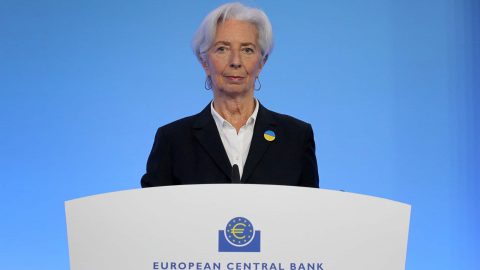
Mega interest rate hikes indirectly increase purchasing power
Gerhard Winzer, Chief Economist at Erste Asset Management, provides an overview of recent economic developments and explains, among other things, what structural problems the euro is facing.
Mixed outlook for the second half of the year
Ahead of the upcoming reporting season, several negative factors dominate the markets. Tamás Menyhárt, Senior Fund Manager at Erste Asset Management, sums up the stock market year so far and shares his views on the further development.
Increasing growth risks
Inflation, the war in Ukraine and monetary policy are driving the markets and stoking fears of an impending recession. Initial economic indicators also point to gloomy growth prospects.

Way Out Recession?
The prices of risk asset classes are subject to downward pressure. Is an inflation spiral likely to occur? Will the increase in key interest rates trigger a recession?

Coronacession
The world is in a state of emergency, with the corona pandemic constituting a global health, economic, and financial crisis. The term “Coronacession” has been created as a chimaera of corona and recession. The central question is how deep the emergency runs and how long it will last. The speed of the development is breath-taking. […]
Big Trouble in Little China?
Trade war, a possible cooling of the world economy and growing uncertainties at the home market: is the Chinese dragon spinning?
Ten theses for 2019
Read our recent blog post on the ten theses for financial market development in 2019. Is fear of a recession exaggerated?
Market view: Increased uncertainty
The performance of most asset classes in the year to date has been mixed, to put it euphemistically. Is there a common underlying factor? Can we expect to see a better second half of the year?
Post-election Turkey – What’s next?
Has the political and economical backdrop improved as result of the election in Turkey? In our newest blog post we’re answering 7 of the most important questions.
Capital markets take a little breather
The economic indicators are falling but do not suggest a recession. The central banks are implementing expansive measures in order to fight deflation risks and to stabilise the financial markets. Hence, the data is slightly better than capital markets were expecting. This gives room for a little breather.
Short-term recovery
Growth is weak, and the downside risks are elevated. However, in a pre-emptive move, the market has already priced in the materialisation of some of the risks. The current development would not immediately suggest it. A short-term phase of recovery on the equity markets would fit this picture. The past days and weeks have not […]
